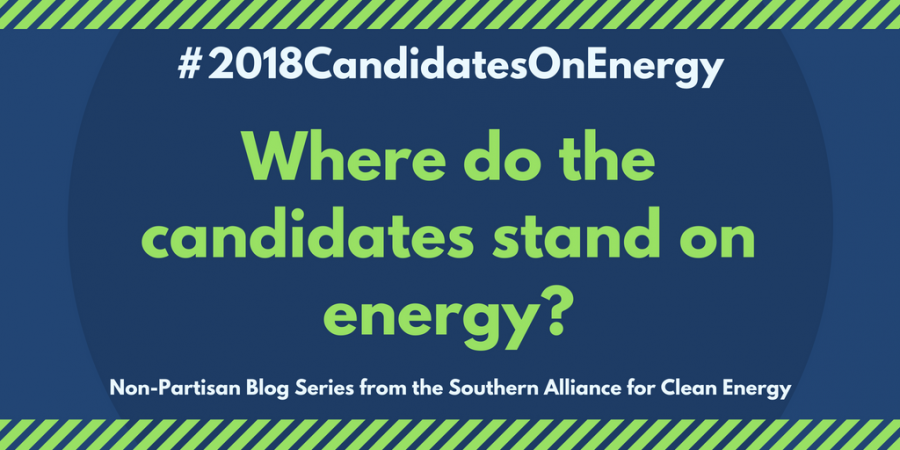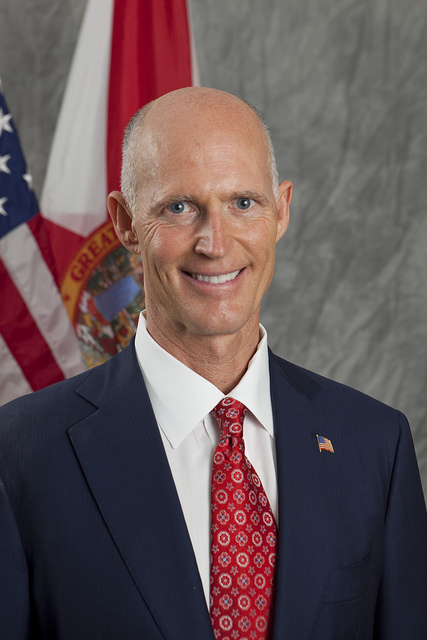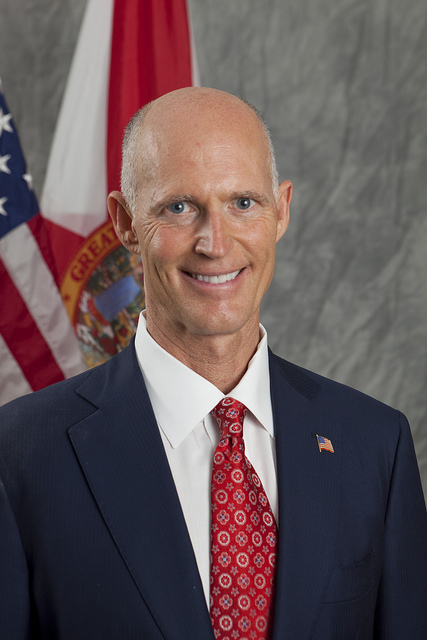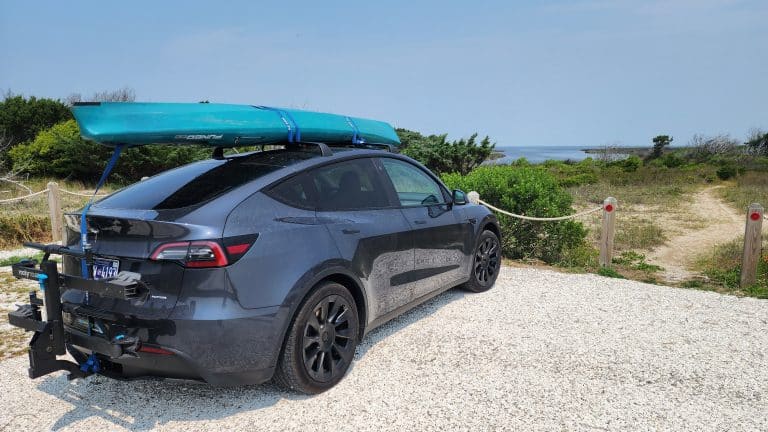 This post is the sixteenth in a series of blogs examining where the 2018 candidates for state and federal offices in the Southeast stand on key energy and climate issues. To read the candidate profile for Florida Democratic Nominee for U.S. Senate Bill Nelson, click here.
This post is the sixteenth in a series of blogs examining where the 2018 candidates for state and federal offices in the Southeast stand on key energy and climate issues. To read the candidate profile for Florida Democratic Nominee for U.S. Senate Bill Nelson, click here.
Note: The Southern Alliance for Clean Energy does not support or oppose candidates or political parties. Links to reports, candidate websites and outside sources are provided as citizen education tools.

Candidate: Rick Scott
Rick Scott is the Republican nominee for the U.S. Senate from Florida. He has served as Florida’s governor since 2010. Before becoming governor, Scott served in the U.S. Navy and was a health care company executive.
Renewables
Governor Scott signed bipartisan bill S.B. 90 into Florida state law to implement a pro-solar amendment adopted by voter Amendment 4 in 2016. S.B. 90 exempts 80 percent of the value of a solar installation from the tangible personal property (TPP) tax for both residential and commercial properties. S.B. 90 also exempts 80 percent of the value of a solar installation from the assessment of real property taxes for commercial properties. A 100 percent exemption already exists for residential properties.
Energy Efficiency
In Florida, the Florida Public Service Commission(PSC), which regulates the state’s largest power companies, sets energy conservation goals every five years. The PSC commissioners are appointed by the governor. In 2011, just two years after energy conservation goals were set, with four new commissioners on the PSC, the Commission effectively rolled back the goals for the state’s two biggest power companies — Florida Power & Light and Duke Energy. Conservation goals took an even bigger hit in 2014 when the PSC gutted them. No public statements on energy efficiency by Governor Scott could be found on his website or publicly available sources.
Clean Transportation
In 2012, there was a provision in Florida’s HB 7177 that revoked the PSC’s authority to adopt a renewable energy goal. There was also a provision that permitted electric vehicle charging stations to provide electricity to the public without being regulated as a utility. In other cases in Florida, only a utility may sell power directly to an electricity customer. This bill became law without Governor Scott’s signature.
Fossil Fuels
When Governor Scott first took office in 2010, he supported oil drilling off Florida’s coast. After the BP Deepwater Horizon oil spill, then-President Obama ordered a moratorium on offshore oil drilling off Florida’s coast. Scott opposed the president’s decision and said we should “be looking to see if we can do offshore drilling safely.”
Since then, Governor Scott has shifted position and says that he opposes expanding oil drilling off Florida’s coast. On February 7, 2018, in response to President Trump’s plan to expand oil and gas drilling leases, including off the Florida coast, Scott stated, in reference to meeting with the Department of Interior Secretary Zinke, “[a]s you know, I’ve opposed offshore drilling, and as soon as Secretary Zinke was confirmed, I met with him, I talked to him about that we didn’t want it off our coast, and then when they came out with their plan — this was right around Christmas . . ., and the right thing happened. There’s not going to be offshore drilling.” Contrary to Scott’s statement, Florida remains in the federal drilling plan. There is no federal agency action to suggest that Florida has been removed from the lease program.
Climate Change
Since 2010, Governor Scott and the Florida Legislature have largely deconstructed legislation that had been in place to promote climate action. Scott’s predecessor, Governor Charlie Crist, signed several executive orders to reduce greenhouse gas emissions within the state and to increase the amount of renewable energy used to generate electricity. In 2008, the legislature provided that both the Department of Environmental Protection (DEP) and the Public Service Commission (PSC) implement the orders.
During the Scott Administration in 2012, the Florida Legislature passed HB 7177, a bill that removed the authority for the PSC to adopt rules for renewable energy goals. Governor Scott allowed it to become law without signing it. That same year, the Legislature passed, and Governor Scott signed, a bill removing DEP’s authority to adopt rules for a greenhouse gas reduction program. Moreover, it has been widely reported that DEP staff was told not to use the term “climate change” in communications with the public or press. According to press reports, when asked about climate change, Governor Scott has responded in 2011 that “I’m not convinced there is any man-made climate change.” In 2014, when questioned on the topic, he responded that “I’m not a scientist.”
Nuclear
Governor Scott, Attorney General Pam Bondi, Agriculture Commissioner Adam Putnam and Chief Financial Officer Jeff Atwater, sitting as the Power Plant Siting Board, unanimously approved Florida Power & Light’s request to build two new nuclear reactors at Turkey Point in south Miami-Dade County, at the recommendation of the Florida Department of Environmental Protection. While there is no guarantee that the plants will be built, Florida Power & Light has recovered approximately $300 million from Florida customers for the units, yet it has taken a “pause” on moving ahead on the project.
We encourage you to vote this November. Click here for voting resources provided by the Florida Division of Elections or click here to register online and request a vote-by-mail ballot.
This blog was also co-authored by Kelsey Grentzer, former Florida Communications Coordinator at SACE.


